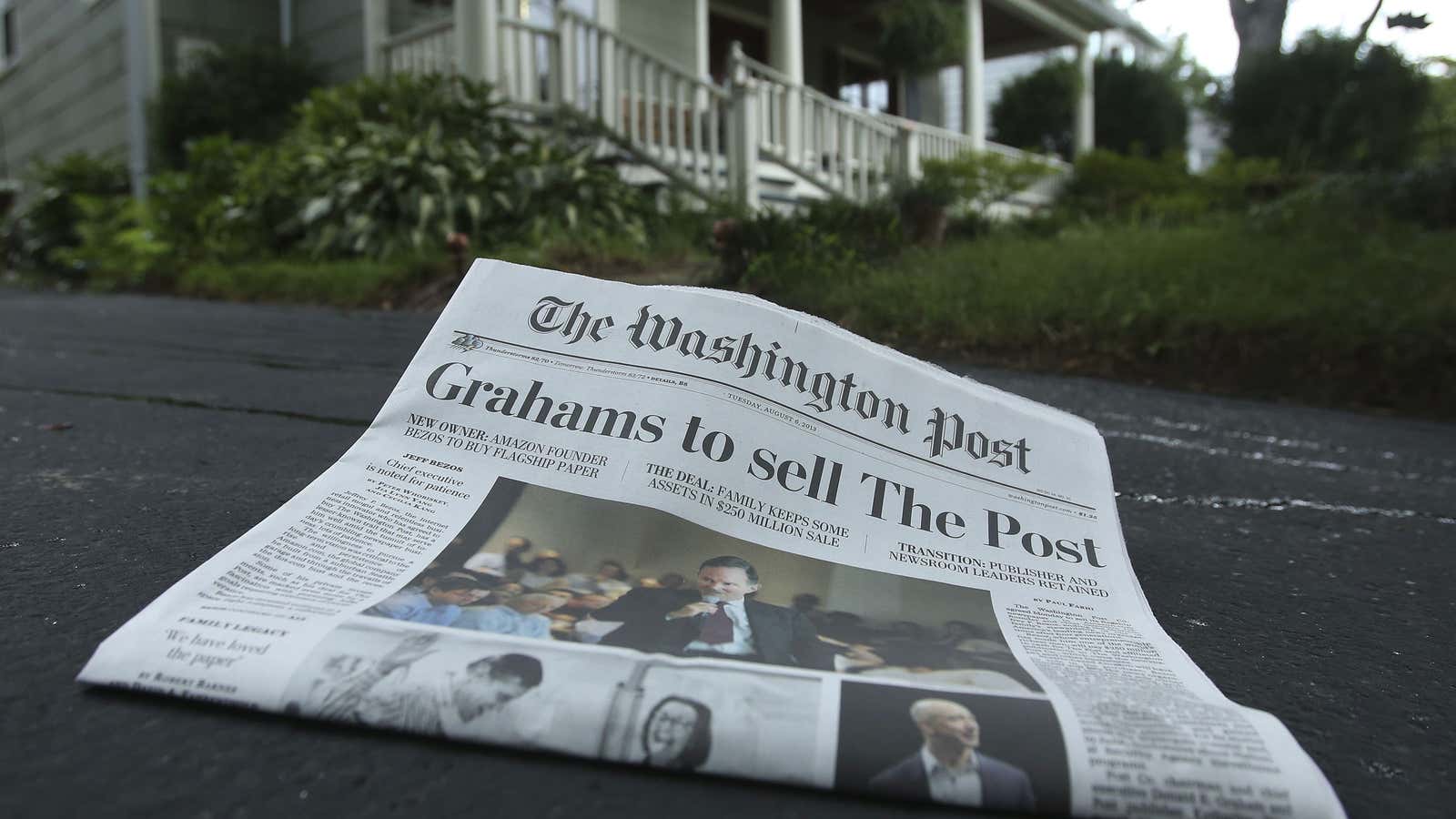Amazon.com founder Jeff Bezos isn’t paying $250 million simply for the Washington Post, its website, and a handful of smaller publications. He’s also getting an unusual financial asset: an extra dollop of the Post’s flush pension plan.
Unusual for a old-line company, the Post’s pension plan isn’t just fully funded—it has $604 million to spare. That’s 41% more than what the company would need to pay every pension promise it has made to every employee and retiree until the day they and their spouses die. (The surplus, it turns out, is thanks to some good advice from Warren Buffett.)
That helps explain why Bezos is shouldering part of the Post pension plan, which isn’t typical in these kinds of transactions. The New York Times Company, for instance, just sold the Boston Globe to John Henry for $70 million, but he isn’t touching any of the Globe’s estimated pension shortfall of $110 million. Seen that way, the Times is ditching the Globe to recoup just part of what it owes the paper’s current and former employees.
By contrast, the letter agreement between Bezos and the Post gives him an extra $50 million from the company’s pension fund, above and beyond what his employees’ pensions will cost from here on out. He’ll also get any investment gains and losses on the assets between now and the sale’s close.
For Bezos, that extra money isn’t exactly free cash. He can’t simply spend it, and pulling it out of the pension plan to use for other purposes is difficult and potentially costly under US tax regulations. Those rules were put in place after Wall Street cooked up ways to strip pensions of extra cash during mergers and acquisitions in the 1980s.
Still, even locked up in the pension plan, the additional $50 million has its uses: It could beef up retirement benefits for his new employees or pay cost-of-living increases for future retirees, without adding to the new company’s cash costs. Under various circumstances, it could be used for severance payments or to fund some types of retirement savings plans. And it could also be used to help fund retiree health-care costs for Bezos’ new employees, since he’s also assuming responsibility for those benefits (but not those for already-retired workers).
Ultimately, if Bezos decides to shut down the pension plan—replacing the benefits with annuities bought from an insurance company, as General Motors and Verizon did with parts of their plans last year—he could probably transform at least part of that extra funding into a substantial rebate on his purchase price.
In that sense, Bezos is paying $250 million for the Post, but he gets a $50 million financial portfolio, too.




